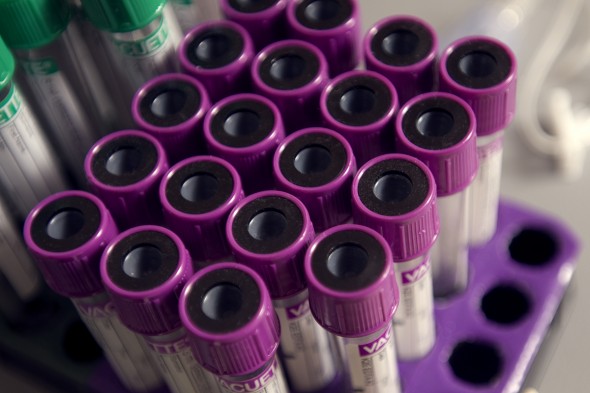Doctors uncertain about ordering, interpreting lab tests
A survey of primary care physicians suggests they often face uncertainty in ordering and interpreting clinical laboratory tests and would welcome better electronic clinical decision support tools.
Over the past 20 years, the number of laboratory tests available to physicians has doubled to more than 3,500 tests, said John Hickner, professor and head of family medicine.
“The optimal testing pathways to arrive at correct diagnoses is changing, so it is difficult for primary care physicians to keep up with new and efficient testing algorithms,” said Hickner, corresponding author on the study published in the March-April issue of The Journal of the American Board of Family Medicine.
“This is a situation that clearly fosters uncertainty, so the results of the survey are not all that surprising.”
In the national survey, 1,768 physicians in general internal medicine or family medicine reported seeing an average of 81 patients per week, and ordering diagnostic laboratory tests for almost a third of those patients.
They said they felt uncertain about ordering tests 15 percent of the time, and uncertain in interpreting the results 8 percent of the time.
Physicians reported that their greatest uncertainty comes from absence of information about patient costs (53 percent), insurance restrictions (40 percent) and different names for the same test (20 percent). The biggest challenges to interpretation were missing results and confusing report formats.
Physicians have developed their own strategies for ordering and interpreting lab tests, such as asking a physician colleague or specialist, consulting a text or electronic reference, or calling the laboratory.
More than half of the physicians surveyed said information technology solutions to improve ordering and access to costs would help. This could include better decision-support software embedded in electronic medical records and direct access to lab personnel through lab hotlines.
The survey was sponsored by the U.S. Centers for Disease Control and Prevention.

